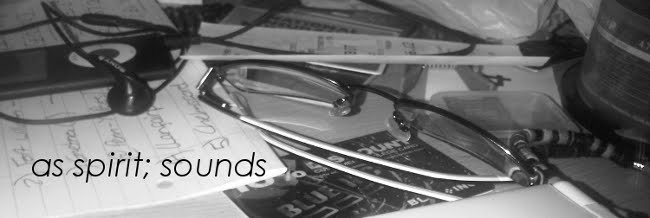 There is a reason why poets have been drawn to rhythm and rhyme throughout the history of poetry. It would, however, be absolutely foolish to claim to know exactly why this is – though I can offer a few thoughts on the issue of why, no matter how hard the more recent schools of poets have tried to break from and fragment the tradition of lyricality in poetry, we’re ultimately stuck writing with the way words sound.
There is a reason why poets have been drawn to rhythm and rhyme throughout the history of poetry. It would, however, be absolutely foolish to claim to know exactly why this is – though I can offer a few thoughts on the issue of why, no matter how hard the more recent schools of poets have tried to break from and fragment the tradition of lyricality in poetry, we’re ultimately stuck writing with the way words sound.When someone decides to begin to write with the intention of producing poetry, the very first flash of thought that goes across their mind is probably ‘I suppose I’d better rhyme this, as that is what poetry is: words which have rhythm and rhyme’. Even after having been academically taught poetry – how to write it, what to think and say or what to withhold – it is still difficult for me to change this perception of how to approach poetry. What does change is the way in which the poet will see and utilise the words available to him.
For instance, there’s a clear difference between being inventive with the sound of words and just rhyming for the sake of rhyming. Instead of choosing a basic word that simply rhymes with another, you begin to be infinitely more selective to the point of absolute frustration. Occasionally there will be no viable way of expressing the thought through rhyme, or the poet will decide that it’s not a great idea to employ rhyme anyway after much deliberation. The poet is then seeing, hearing and knowing rhyme in the broadest possible sense. That is being inventive with language, as opposed to flippantly throwing words that have identical sound patterns yet have no collective value together.
It’s a strong personal belief of mine that there should most definitely be musicality in poetic language. When I pick up the guitar, I instinctively play with chords and picking patterns to produce harmonies. When I sit to write a poem, I instinctively play with the way things sound in order to inject tone into language. There is absolutely nothing wrong – as far as I can see – with this. We are raised on nursery rhymes and songs, we are taught that sound is very important from an early age; we adore music, bands and instruments of all kinds throughout our lives. Wallace Stevens, a personal favourite poet of mine, was inclined to agree that ‘sound’ is an integral part of our universe; as such, it is poetry itself.
What budding writers now think they have to do to become a decent poet – in a bizarre offshoot from the modernist era – is to have no rhyme or rhythm whatsoever. They tend to eliminate it altogether, focus on images and pay little attention to traditional forms in a very Poundian fashion. There is too much bearing on free verse and little appreciation of working hard on a syllabic form, where often a tighter form and closer attention to how the poem as a whole sounds would benefit it immensely. This is a shame. We’ve come into the 21st Century believing that the modernists and postmodernists had things completely right when this is simply a blinkered way of viewing things.
So my message for today is this: don’t be tempted to let the music in poetry die when you write. It can’t be removed completely, as words are, ultimately, sounds themselves. Yet it pains me to think that there will be yet more upcoming poets not taking what is now considered a bold step backwards to look at traditional ways of writing poetry. There is a time for poetry that is disjointed and minimal; there is a time for when it isn’t. It’s a case of having the conviction and confidence to rise above simply being ‘modern’ when you write, if that is what you believe is ‘required’ of your self-expression.




No comments:
Post a Comment